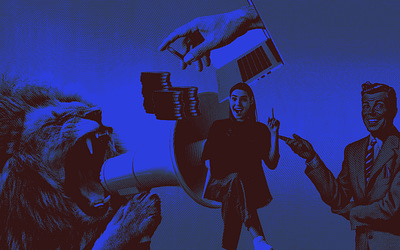Psychology has been used in marketing since the early 20th century, but it’s not just a tool for understanding how people make decisions. Psychology is also a field of study that attempts to understand how people think. And while this can be useful information for marketers, there are some key takeaways from psychology that apply specifically to digital marketing:
- People respond differently depending on whether they’re faced with an interpersonal or impersonal situation—which makes sense when you consider that most people spend their time online interacting with others rather than doing things alone or by themselves (like reading news articles).
- The same principles apply across cultures: If you want your ads’ impact to be more significant than average, look into cultural differences between where your customers live and what types of messages resonate best with them locally.
For marketers, the basic premise of psychology is understanding how to manipulate the user into making a purchase.
Marketing is about understanding the customer. It’s about understanding what they want and how to give it to them. This can be done in a variety of ways, but there are three main methods:
- Understanding their wants – Psychologists study human behaviour as it relates to marketing so that marketers know how best to appeal to consumers’ desires and dreams. They’ll also help companies determine what products will sell well based on these factors. For example, if you’re selling furniture online but don’t have any pictures available yet (or even if you do), then psychologists may suggest using an image from your catalogue or some other source so that potential customers know exactly what kind of product they’re getting before buying anything!
- Understanding their desires – Another way psychologists make sure people get what they want is by studying whether certain products are needed more than others; this way salespeople can figure out which ones work best for their customer’s needs while still providing enough variety so everyone has something different within each category.”
Human behaviour is complex, but some patterns can be found. Behavioural economics is based on the idea that people don’t always make rational decisions.
The basic principle of behavioural economics is that we’re not entirely rational; our brains are influenced by emotions and incentives in ways we don’t always understand.
When choosing between two different options, people will attempt to minimize their regret
- People tend to choose the option that is less risky: When you’re asked about your favourite colour, for example, most people would rather say “yellow” than “green”. This may seem obvious but it can be easy for us humans to get caught up in our own perspective and forget about what others think of us. It’s important for marketers like ourselves not only because we want our customers’ opinions on products but also because it helps inform our own decision-making process as well!
- People tend to choose the option that is more certain: If I ask someone whether they’ve ever been married before (a question to which many would answer yes), then I know my chances are pretty good at getting an immediate response from them—especially if they’re younger than myself! However, by asking someone else instead who has just gotten married recently (or even those who have been married before), I might find out something interesting about my friend’s relationship which could change everything forever…
When making a decision, people tend to focus more on what they stand to gain than what they stand to lose
This means that when faced with two options, one of which has an expected positive outcome and another of which has a desired negative outcome, we are more likely to choose the latter option even if its actual likelihood is close or equal to the former’s likelihood (as long as it’s something we value). For example, Your company has been experiencing financial difficulties lately because of your poor business decisions. You decide that you will cut costs by firing half of your staff in order for them not only to save money but also to keep their jobs for at least some time before finding new ones elsewhere (which would be expensive). However, after doing so there may be few qualified applicants waiting in line because most companies have already been hiring aggressively due to high demand during this time period while simultaneously reducing costs through layoffs.”
People aren’t aware of how big of influence emotions can have on their decisions
Emotions are powerful influencers on our purchasing behaviours. When something makes you feel good, it’s easier to buy it than when something makes you feel bad. This is why companies such as Nike have been able to make such successful ad campaigns that appeal to people’s emotions through the use of music or other techniques (like using celebrities).
FOMO is a real thing
FOMO stands for “Fear of Missing Out,” and it’s a phenomenon that affects the way we make decisions. You might have FOMO if you find yourself saying things like, “I should check my email before they send me an invitation to something cool.” Or maybe you’ll just bounce back from social media and spend the rest of the day moping around your room and eating ice cream.
It’s easy to think that being online means always being connected and staying up to date on everything going on in life—but research shows otherwise! In fact, spending too much time online can actually increase stress levels and lead people toward depression due to feeling lonely or isolated from others (which is especially true for young adults).
Conclusion
We hope you learned something new from today’s post and that it will help you better understand how digital marketing works. If you’re interested in learning more about marketing psychology, there are some great resources out there! We recommend reading up on the basics of consumer behaviour as well as how human emotions influence decision-making processes.







